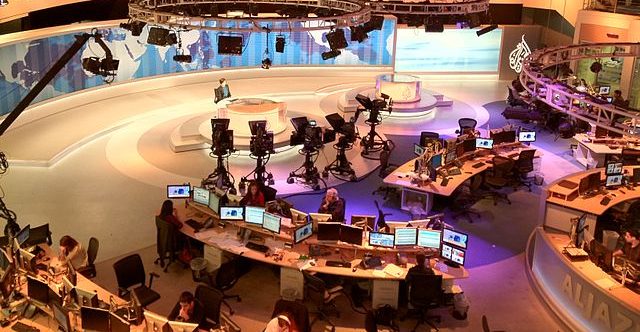Do channels like GB News have a future in the UK?
I feel a little bit awkward for Andrew Neil. Having left the BBC in 2020 to take up a role as a presenter and the founding chairman for GB News, he then left just a year later, reportedly due to differences over the direction in which the channel was heading. Just two days ago, he then had to discuss his former venture in front of a House of Lords Communications and Digital Committee hearing into the future of news, where he stated his conviction that the venture he once had so much belief in would never be profitable.
He’s not wrong to be concerned. GB News reported a loss of £42 million – an increase of 40% – last month. Admittedly, it also stated that its online page views rose by 431% to 51.9 million, but when you add to these figures a series of significant issues surrounding the channel – such as the way an episode of Dan Wootton Tonight broke broadcasting rules – this is hardly a convincing sell on their success. Similarly, their rival, Talk TV, has announced that they would cease traditional television broadcasting, and would move solely online – no doubt in part to the fact that Piers Morgan has decided to take his show on their channel to YouTube instead. Clearly, there’s something going on with these channels and the content they produce.
These channels are far from being in the mainstream, and their presenters are often taken with a pinch of salt
There is a couple of things at play here. We’re all aware of the more general shift from traditional television – and by extension, traditional news programming – to streaming services like Netflix and social media apps like TikTok. Morgan’s decision to move to YouTube is evidence enough of this – TV channels don’t have the same pull as they once did.
When you then consider the kind of content that these shows promote, their decline becomes even more apparent. In his statement in front of the House of Lords committee, Neil expressed his concern over what he saw as a drift toward a Fox News style of broadcasting: “What I didn’t want it to become – I could see it was happening, which is why I left almost immediately – was an outlet for bizarre conspiracy theories or anti-vaxxers or, basically, the nutty end of politics.”
The reason why Fox News works in America (or at least, in my opinion) is because of the increasing polarisation of that country since the election of Donald Trump. This is particularly the case when you consider that Trump actively made Fox News part of his presidency. In fact, it was a sort of extension of his White House, as he often sat down with journalists and phoned in to live broadcasts (though things are not so cosy now), dropping outrageous opinions that were then endorsed or replicated on the channel. As much as I might not like the politicians we have over here, you don’t really see them promoting anti-vax theories or denying climate change, nor praising the type of channels that promote these ideas. Even when we do have a polarising politician, we can trust the British public to throw a milkshake at them to cool down their fiery rhetoric – oh, and that people are starting to realise he wasn’t quite honest with the British public when it came to Brexit. So even if the online viewership that GB News claims to have is accurate, these channels are far from being in the mainstream, and their presenters are often taken with a pinch of salt.
It’s just that we, as a society, do not have the required structures for, or the political culture in which this kind of reporting could become mainstream
In fact, their content comes instead to work against them. GB News was in fact reprimanded last month by Ofcom over comments made by actor-turned-politician Laurence Fox on an episode of Dan Wootton Tonight. This added to the twelve other open investigations confirmed by Ofcom in September 2023. If this was a competition for how not to attract viewers, they’d be smashing it. The fact that a quick visit on their site shows a page where you can get a membership and also donate directly to them is hardly encouraging.
That’s not to say that polarising news doesn’t have a place in the UK. We have our own share of fake news or firebrand politics (cough, Piers Morgan, cough). It’s just that we, as a society, do not have the required structures for, or the political culture in which this kind of reporting could become mainstream. Obviously, never say never, particularly as we could be seeing a general election on the horizon. But when you’re up against a population that is becoming less interested in traditional news programming as it is, you hardly have a chance when you’re promoting a minority view and are getting in hot water with the broadcasting authority because of it. The likes of GB News and Piers Morgan will always have a place and indeed a future in this country, but it gives me great pleasure (and relief!) to say that said future isn’t looking too bright.

Comments